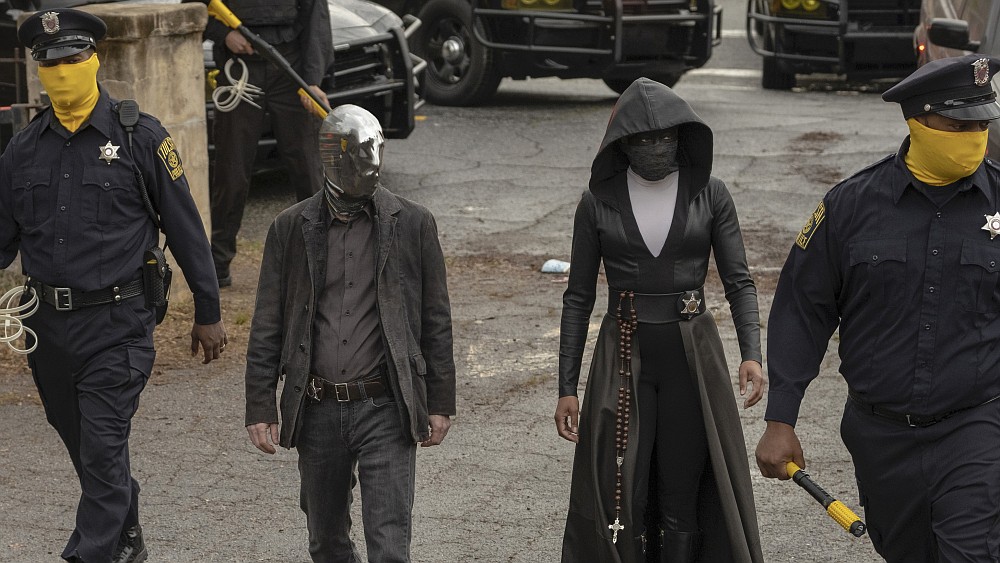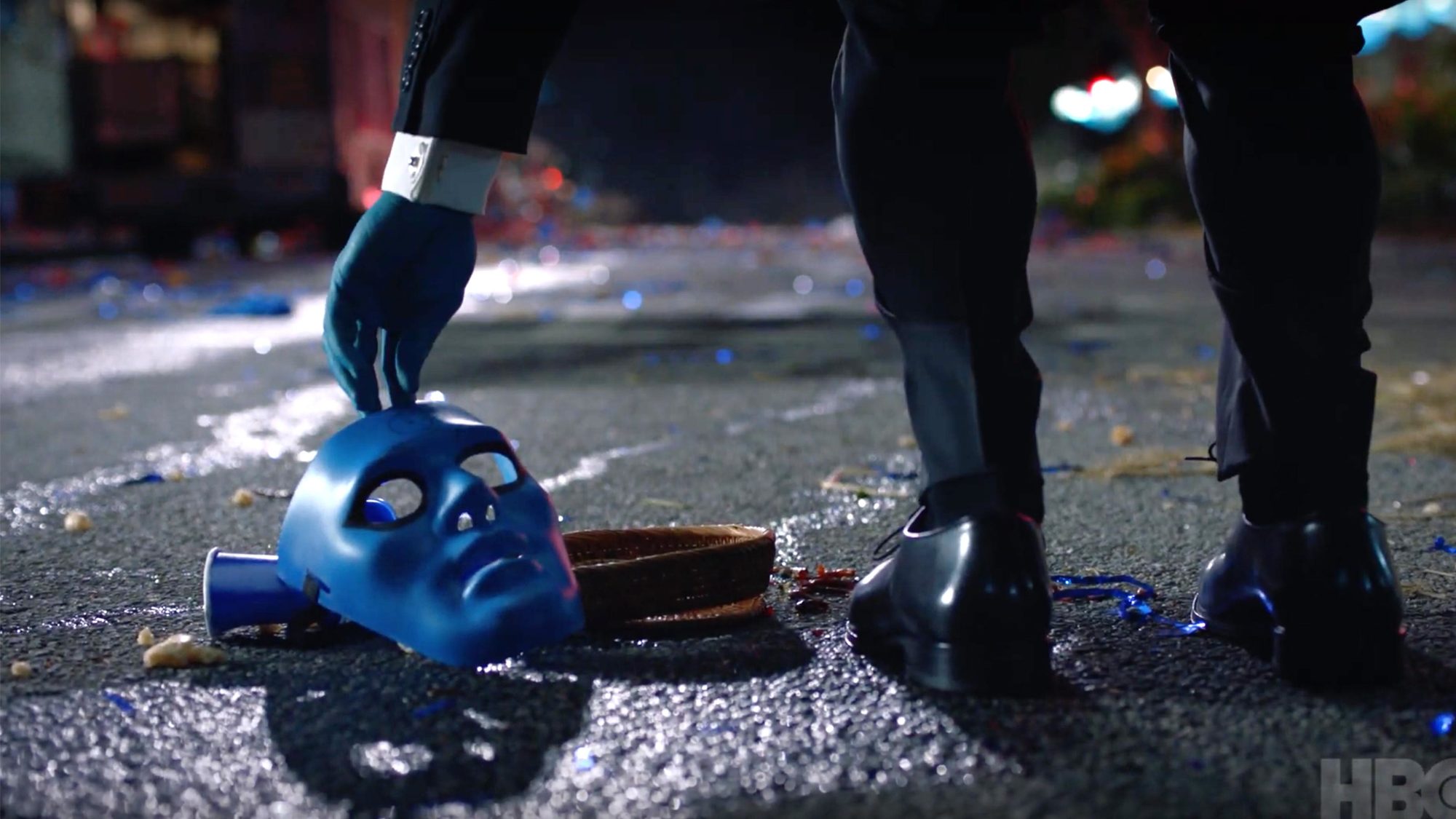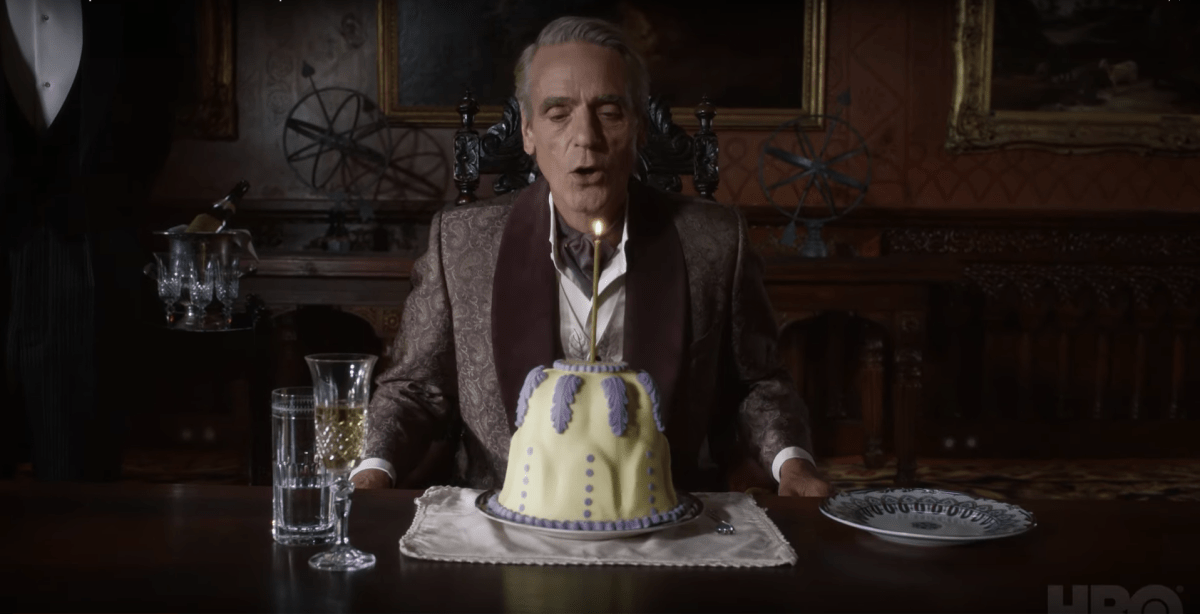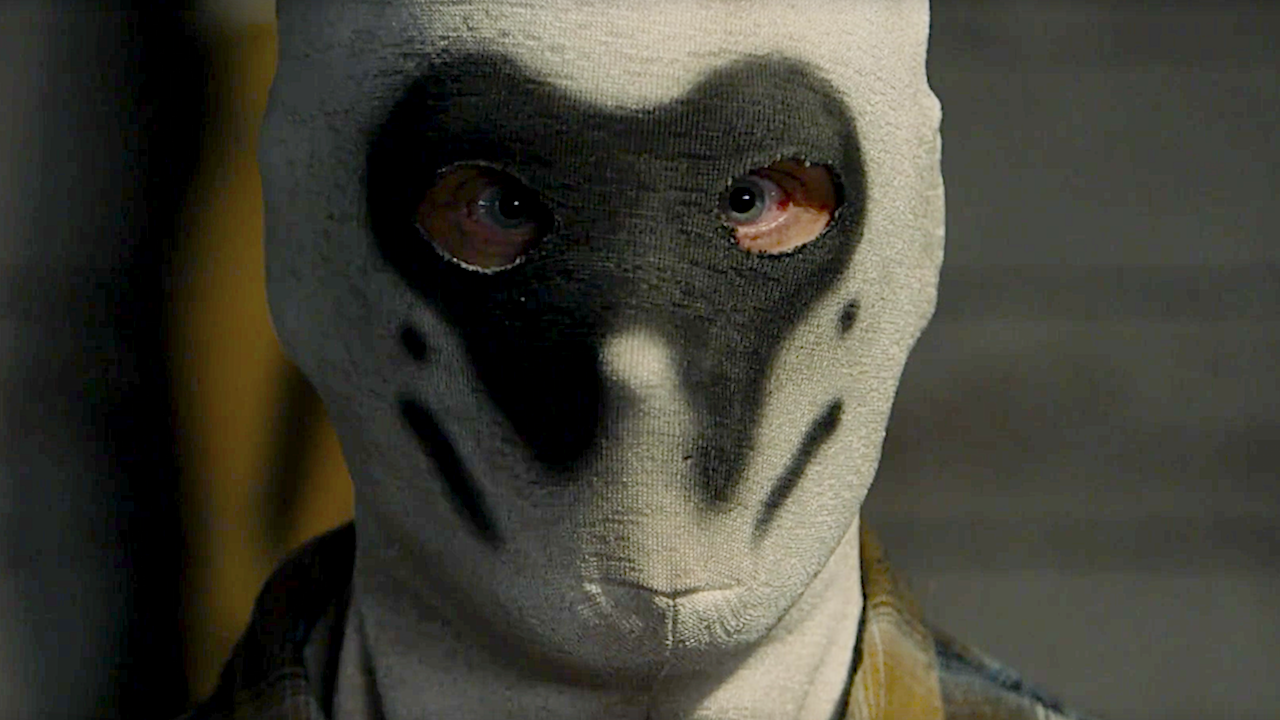- May 3, 2025
-
-
Loading

Loading

Some insight into how the Binge Blog sausage gets made: I write the recommendations first, then write this intro piece. And as I started to write this intro, my little word counter said "1,200" which is longer than a full Binge Blog usually is.
So in the interest of not losing all two of my readers, I'm going to get this intro over with, so you can read about the best piece of media of 2019.
HBO, rated TV-MA, 60 minutes

Of all the things I recommend here, this one is the one I urge you the strongest to watch.
The Damon Lindelof show is a sequel, or a “remix,” as Lindelof calls it, of Alan Moore’s legendary graphic novel of the same name. Please forget all references to and knowledge of Zack Snyder's 2009 "Watchmen" movie, which is hot garbage. This show and the novel are all you need now.
The novel was groundbreaking for the way it deconstructed the typical superhero story and for its musings on a range of themes, including how easily unchecked power can corrupt even the most well-meaning souls. That’s why it had the tagline, “Who is watching the Watchmen?”
(By the way: “Watchmen” is just a catch-all term for people in positions of control over others’ security/livelihood.)

You don’t have to have read the novel to understand the show, though there are about a million Easter eggs in each episode that will make you smile if you have. That’s a point I feel like I have to make, over and over, because the first thing anyone is going to say after watching an episode of “Watchmen” is something along the lines of: “What the hell was that?” For these people, I have good news: Through five episodes, us book readers don’t have much of a clue, either.
That’s what makes it so wonderful. If you have watched Lindelof’s previous ventures, like “Lost” and “The Leftovers,” you know he likes to take storytelling risks. He will base the whole show around one character’s perspective then suddenly devote an entire hour to someone the audience has never even met. His plots are less a straight line than something resembling the lines on a pirate’s treasure map. He takes a lot of risks, and "Watchmen" is no exception.
That all said: What is “Watchmen”? Well, the novel, set in the Cold War era, revolved around a group of masked vigilantes trying to catch a killer that was picking them off one by one. These vigilantes were mostly regular people. Only one, Dr. Manhattan, had superpowers. Think of him as an analog to Superman, except he glows a radioactive blue hue. Anyway, the group — which was NOT called “The Watchmen,” to clear up a common misconception; it didn’t have a name — was made of spiritual descendants of The Minutemen, the first vigilante group of its kind in the '50s. The story flashed between the then-present day storyline and scenes from the Minutemen days.
The show, on the other hand, is set in 2019 and mostly follows a different set of characters, but the effects of the novel’s conclusion loom large: One of the vigilantes, Adrian Veidt (aka Ozymandias), purported to be the smartest man on the planet, fakes an alien invasion and kills 3 million people via a giant inter-dimensional squid falling on New York City to prevent a nuclear winter and mass extinction. (Don’t ask.) This is after he’s revealed to be the vigilante killer, knocking off those that find out about his plan and try to stop it.
The plan, for all its flaws, works: Peace is restored to the world, at least temporarily, but the world changes as a result.
Hence, this version of 2019 is much different than our own: The internet exists, but its not mainstream because people have a healthy fear of technology. There are no smartphones either. People prefer to use beepers to communicate. Robert Redford — the actor Robert Redford, not Robert Redford playing a character — has been the president for close to 30 years thanks to the elimination of term limits. Vietnam is now part of the U.S. Random squid showers still plague the skies.

It is this reality in which Angela Abar (Regina King) lives. Abar runs a bakery in Tulsa, Ok., but she’s also a not-so-retired masked detective who goes by the pseudonym Sister Night. Only those employed by the police can wear masks; vigilantism is against the law after the events of the novel. Abar “retired” after a mass attack on police officers in their homes conducted by the Seventh Kavalry, a white supremacist group that wears the sigil of former vigilante Rorschach on its masks. A period of rest followed, as police started rounding up SK members, but as the show begins, SK announces its comeback. And by the end of episode one, a death mirroring the death of the Comedian in the novel kicks off the rest of the story.
In solving the crime, Abar is joined by Wade Tillman (Tim Blake Nelson), aka Looking Glass, who wears a reflective, eyeless mask and has a tendency to weird out people. He’s clearly been troubled by something, but at the beginning of the series, you don’t know what. They both work for Police Chief Judd Crawford (Don Johnson), who seems hell-bent on stopping the SK before they regain all their power. Also around is Laurie Blake (the wonderful Jean Smart), the daughter of The Comedian and one of the vigilantes from the novel (Silk Spectre). She works, unmasked, for the FBI now and assists Abar and Tillman with their investigation.
Around, too, is Veidt (Jeremy Irons, who is having the time of his life), though it often feels like he’s on a completely different show. He lives in a giant castle and has humanoid servants and rides a beautiful black horse around a lush field. Only conspiracy theorists believe he was behind the squid attack, but he has sold his tech companies and moved to a remote location, seemingly against his will. The full backstory takes a while to play out, but Veidt has a plan to reinsert himself into the zeitgeist and free himself from his current isolation. His segments play almost as a flat-out comedy, a bold turn for the show to take, but one I think works.

It is tough to talk about the series in more than superficial terms because, as of yet, the show hasn't come full circle. There's three episodes left to air, and Lindelof has promised that the season is self-contained. But there's a lot more at play than solving one murder. I haven't even mentioned the mysterious man in a wheelchair (Louis Gossett Jr.) who talks to Abar about a "vast conspiracy at play," or Lady Trieu (Hong Chau), the woman who bought Veidt's tech companies and is buying up property in Tulsa for the purpose of who knows what, or Sen. Joseph Keene (James Wolk), a friend of police chief Crawford who has grand designs of his own.
In other words, there's a lot going on! Along the way, it hits viewers with nuanced takes on racism and police brutality and the effects of PTSD among other weighty topics. Certain viewers have expressed anger at the show for daring to tackle these topics, but those people don't realize the novel was political too, just on different angles. The overall point remains the same, though: Power, when unchecked, leads to destruction. It's as relevant today as it was in the Cold War era.
The action scenes are visceral, the emotional scenes are appropriately heavy, and there's enough levity to counterbalance the dark stuff. It is abrasive. Some of you will hate it. Others will be enraptured by it. Either way, it will leave your head spinning, and I wouldn't want it any other way.